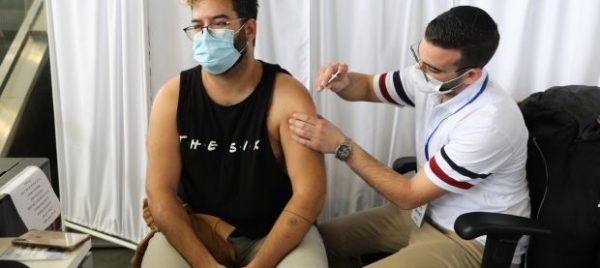
Darryl Morris Weekly – 05.02.21 – Lessons
I’m not sure if you’ll remember this, because it hasn’t had much coverage, but at the start of 2020 a virus emerged from China and took hold in Asia and Europe. Distracted by Brexit and being unfathomably outraged about the existence of Meghan Markle, we didn’t watch closely enough. We stumbled and fumbled and when it was our turn to take action against the virus, we were woefully unprepared. It was an era marked by countless speculative headlines; each newspaper, journalist, expert and minister picking a different path they were sure we should take.
And here we are again, as we consider what impact the vaccine roll out will have. Every day, we’re bombarded with speculation on when and how measures will ease. March, say some. Easter, say others. Summer. September.
It’s noisy and it’s unhelpful. I have given up reading it. Instead, we are far better doing what we didn’t do in February last year. Watching and learning.
Unlike at the start of the pandemic, we find ourselves ahead of the curve rather than behind it. Our well coordinated vaccine roll out means we have a head start on much of the world. Although I’d be quick to point out that we lag far behind on the number of people given two doses, it shouldn’t detract from the incredible effort of the NHS and local authorities. Yet, still, there are other countries we can learn from. Namely, Israel.
Israel’s breathless vaccine roll out has been phenomenal. Over 20% of the population have been armed with two doses and trends are showing that half of the adult population will be fully vaccinated by mid-March. The best sense of what our future holds comes from one of the few countries currently living it.
This weekend, we’ll suspend the baseless speculating and look to Israel for some answers. What effect is the vaccine having on deaths, hospitalisations and measures? It’s a complex picture, but right now its the closest we have to a crystal ball.
We’ll cast our eye back to the States, too. With Trump’s second impeachment trial set to begin on Tuesday, it’s worth us revisiting that question: how likely is a conviction, and why does it matter?
It’s also another moment of reckoning for the Republican Party. It will teach us how deeply rooted Trump and Trumpism is in the GOP.
Republican congresswoman Marjorie Taylor Greene has filled the void left by Trump’s Washington departure. She’s been quick to take on the role of headline grabbing provocateur. The conspiracies she has pushed include claims that the Parkland shootings were a hoax and that Californian fires were started by Jewish orchestrated space lasers. One of the major pitfalls in the battle against misinformation and conspiracies is how fascinating they are. It‘s hard to not talk about them. Before you know it, huge swathes of air time and column inches have been given to the loudest, strangest voice in the room, legitimising the often nonsensical and dangerous arguments they make. See also: the rise of Trump.
It becomes harder to ignore, though, when the provocative loud mouth is an elected official. Marjorie Taylor Greene may have started life as a troll, pushing the Q-Anon conspiracy group, but then she stood for office. And then she won. Now she’s no longer just carping into a webcam from her bedroom, she has responsibility and power. And the media has a different sort of responsibility in holding her to account.
There a lessons for us, too. If the UK is to follow with an era of political stability, post-Brexit and Coronavirus, there will be similar forces working to disrupt. If America, true to tradition, is a few steps ahead of us, it’s worth us watching closely to see what our future holds.
This weekend, we’ll get the band back together. Edward Hardy from The Hardy Report and Greg Swenson from Republicans Overseas, who guided us through the election, will give us their take from either side of the argument.
And if it all seems too much, a trip off earth and into space is becoming an ever more realistic prospect. A billionaire businessman is leading a flight into orbit, and you can join him for the cost of a $1 lottery ticket. This weekend, we’ll find out how they are using the trip to raise money for a children’s charity and how much closer we are getting to wide-scale space tourism.
I bought a ticket. So maybe future editions of this newsletter will reach you from space. I can name you a few twitter accounts who would rather that were the case.
See you in the morning.
February 05, 2021 | No Comments